Step into the bustling streets of Lisbon during its Golden Age, where the air was filled with the promise of discovery and the echoes of cultural exchange.
In this era of exploration and innovation, Lisbon stood as a beacon of cosmopolitanism and global interconnectedness, drawing in minds and ideas from all corners of the world.
As the sun sets over the Tagus River, the city’s golden facades whisper tales of a bygone era, inviting you to uncover the untold stories of its past.
Key Points
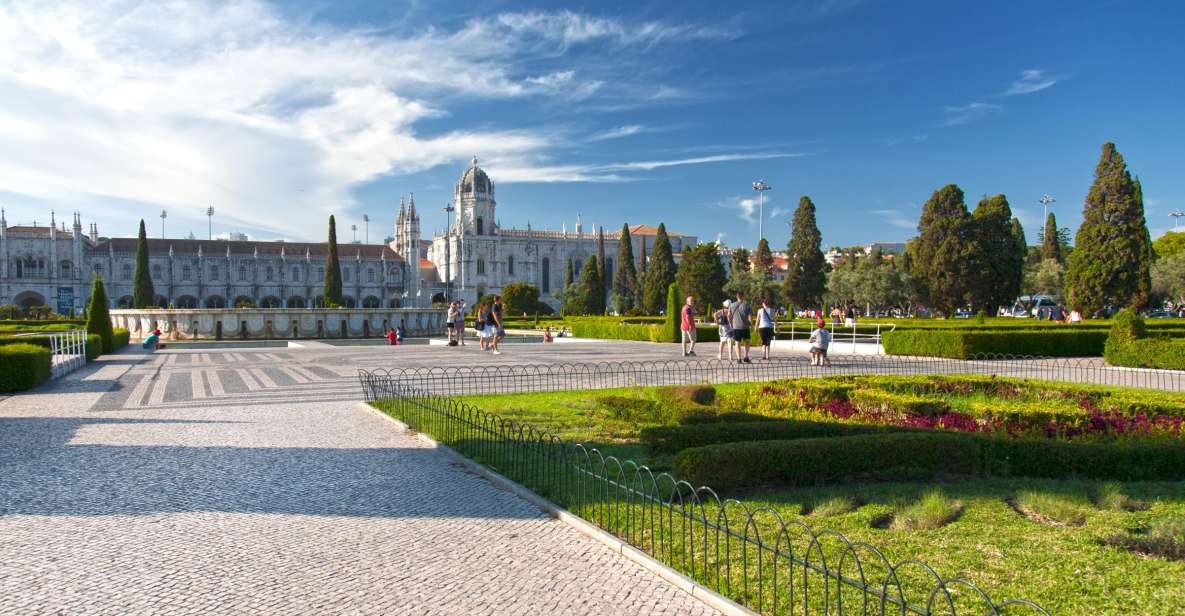
- Lisbon’s Golden Age marked by historical evolution, architecture, and maritime expansion.
- Cultural experience includes tasting ‘Pastéis de Belém’ and exploring diverse influences.
- Tour provides insight into Lisbon’s role in globalization and intellectual movements.
- Transportation logistics ensure a comfortable, informative, and punctual exploration of key landmarks.
Historical Evolution and Architecture
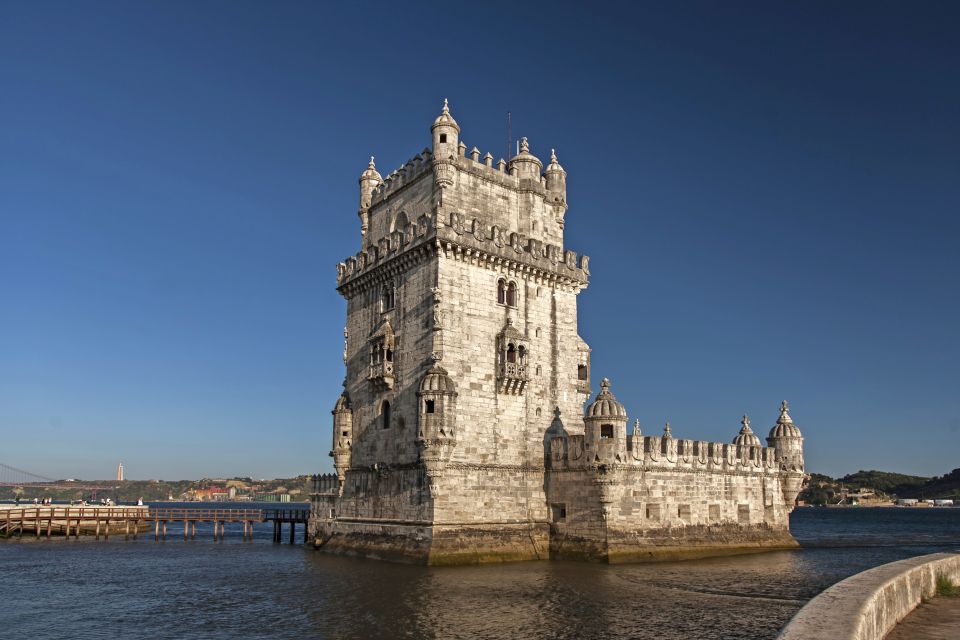
Delving into Lisbon’s rich history and architectural marvels reveals a tapestry woven with the threads of time and innovation. The city’s historical evolution showcases a blend of evolutionary trends and architectural innovations that have shaped its identity.
From the classical lines of the Jerónimos Monastery to the intricate details of the Belém Tower, Lisbon’s buildings speak volumes about its past. Each structure tells a story of resilience and adaptation to the changing times, reflecting the city’s ability to embrace new ideas while honoring its heritage.
The fusion of different architectural styles throughout the centuries highlights Lisbon’s role as a melting pot of creativity and inspiration, where innovation meets tradition in a harmonious dance of progress.
You can also read our reviews of more tours and experiences in Lisbon.
Role in Globalization and Expansion
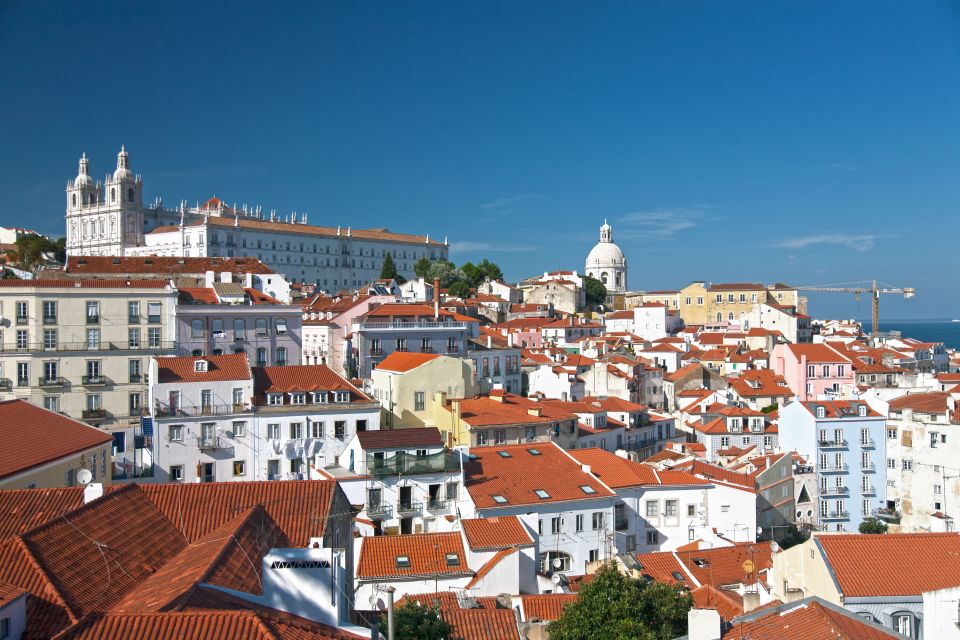
Lisbon’s pivotal role in globalization and maritime expansion resonates through its historic landmarks and cultural heritage, showcasing a narrative of interconnectedness and exploration.
As a hub of global trade, Lisbon played a crucial part in connecting different continents, facilitating the exchange of goods, ideas, and cultures. The city’s strategic location on the Atlantic coast enabled Portuguese explorers to undertake groundbreaking maritime expeditions, expanding their reach to distant lands and shaping the course of history.
Landmarks like the Jerónimos Monastery and Belém Tower stand as testaments to Lisbon’s significant contributions to maritime exploration during the Age of Discovery. Through these endeavors, Lisbon left an indelible mark on the world, forging connections that transcended borders and fostering a legacy of exploration and global influence.
Cultural Integration and Miscegenation
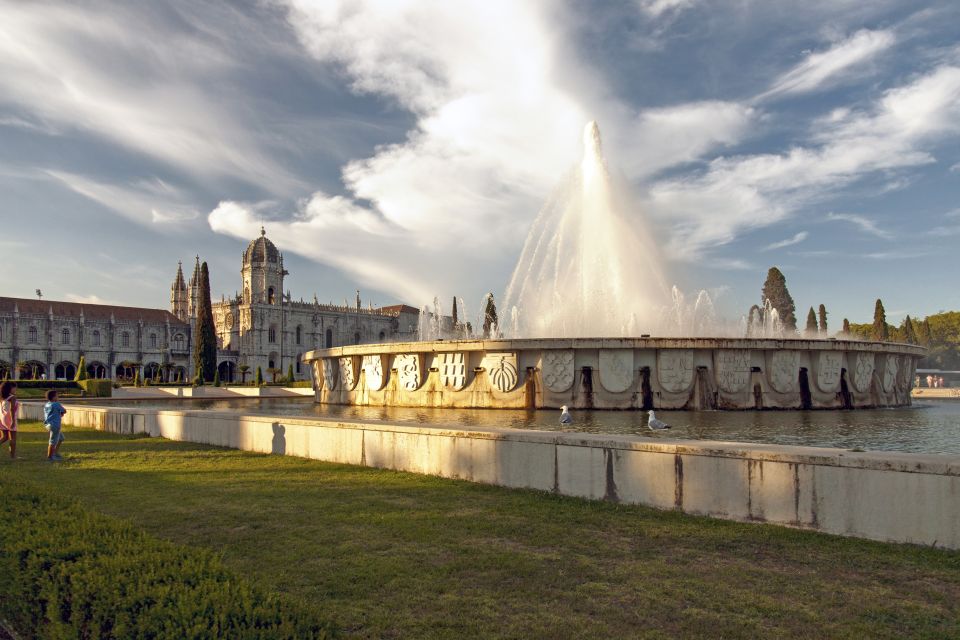
Amid Lisbon’s historical tapestry of exploration and global influence, the narrative of cultural integration and miscegenation emerges as a vibrant thread weaving together diverse influences and identities.
The city’s rich history reflects a tapestry of cultural diversity, where ethnic blending has shaped its unique character. Lisbon’s streets bear witness to the fusion of various traditions, languages, and customs, creating a cosmopolitan atmosphere that celebrates inclusivity and unity.
In neighborhoods like Madragoa, the legacy of miscegenation is palpable, showcasing the harmonious coexistence of different cultural backgrounds. This integration hasn’t only enriched Lisbon’s cultural landscape but has also contributed to its resilience and dynamism, making it a beacon of tolerance and acceptance in an ever-evolving world.
Influence of Humanist Movement
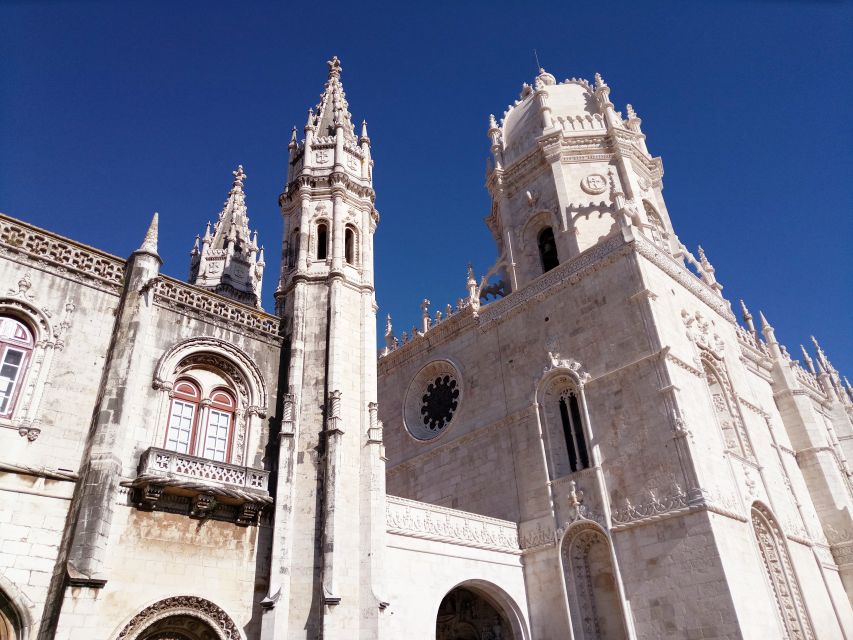
The Humanist Movement in Lisbon captivated minds and hearts, reshaping perspectives and fostering intellectual growth across the city. Humanist philosophy emphasized the importance of human values, reason, and critical thinking, influencing art, literature, and education. This movement sparked an artistic revival, inspiring creativity and innovation in various fields. Through the exploration of classical texts and ideals, humanists in Lisbon sought to revive ancient wisdom and apply it to contemporary society, promoting a deeper understanding of human nature and the world. As a result, Lisbon experienced a cultural renaissance, where intellectual pursuits flourished, and a newfound appreciation for the arts emerged. The Humanist Movement left a lasting legacy, shaping the cultural landscape of Lisbon for generations to come.
| Humanist Movement | Artistic Revival |
|---|---|
| Emphasized human values | Inspired creativity |
| Focused on reason | Promoted innovation |
| Encouraged critical thinking | Cultivated appreciation for the arts |
| Revived ancient wisdom | Shaped cultural landscape |
| Influenced art, literature, education | Sparked cultural renaissance |
Impact of Intellectual and Social Movements

The legacy of the Humanist Movement’s intellectual influence in Lisbon reverberates through the city’s social fabric, catalyzing a flourishing of progressive ideas and cultural shifts. The Impact of Renaissance thinking can be seen in the city’s architecture, art, and literature, fostering a climate of creativity and innovation.
Social Reformations have brought about changes in societal norms, advocating for equality and justice. Lisbon has become a hub for intellectual exchange, attracting scholars and thinkers from all over the world.
The city’s rich history and diverse population have created a melting pot of ideas, leading to a vibrant and dynamic cultural scene. The Impact of Intellectual and Social Movements continues to shape Lisbon’s identity as a cosmopolitan and forward-thinking city.
Common questions
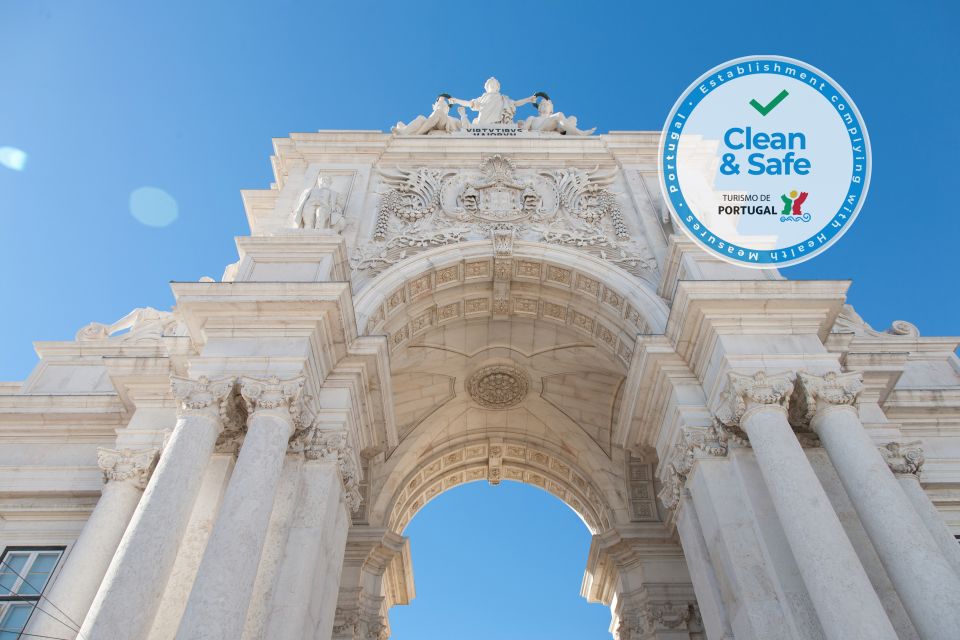
How Does Lisbon’s Golden Age Compare to Other European Cities During the Same Period?
During the Golden Age, Lisbon’s urban development rivaled other European cities. Comparative analysis reveals Lisbon’s maritime influence, architectural splendor, and cultural exchange. Its cosmopolitan essence and global impact set it apart, shaping a unique historical legacy.
What Were the Major Challenges Faced by Lisbon During Its Golden Age?
Lisbon encountered significant challenges during its Golden Age, including economic instability, political unrest, and competition from other global powers. Despite these obstacles, the city also had opportunities for growth, innovation, and cultural exchange that shaped its cosmopolitan identity.
How Did Lisbon’s Architecture Evolve During the Golden Age and What Influences Can Be Seen in the City Today?
Lisbon’s architecture evolved during the Golden Age, showcasing a fusion of cultural influences. The city’s buildings reflect a blend of Moorish, Gothic, and Manueline styles, creating a unique and vibrant urban landscape that continues to inspire visitors today.
What Role Did Lisbon Play in the Global Economy During Its Golden Age?
Lisbon’s pivotal role in the global economy during its Golden Age stemmed from its strategic location and prowess in trade, exploration, and diplomacy. The city’s innovation, economic growth, and urban development fostered robust global connections, cultural exchange, and prosperity.
How Did the Cultural Integration and Miscegenation in Madragoa Contribute to Lisbon’s Identity During This Time?
During that time, cultural fusion and ethnic diversity in Madragoa enriched Lisbon’s identity. The integration of different cultures and backgrounds led to a vibrant community, shaping the city’s unique character and contributing to its cosmopolitan allure.
Final Words
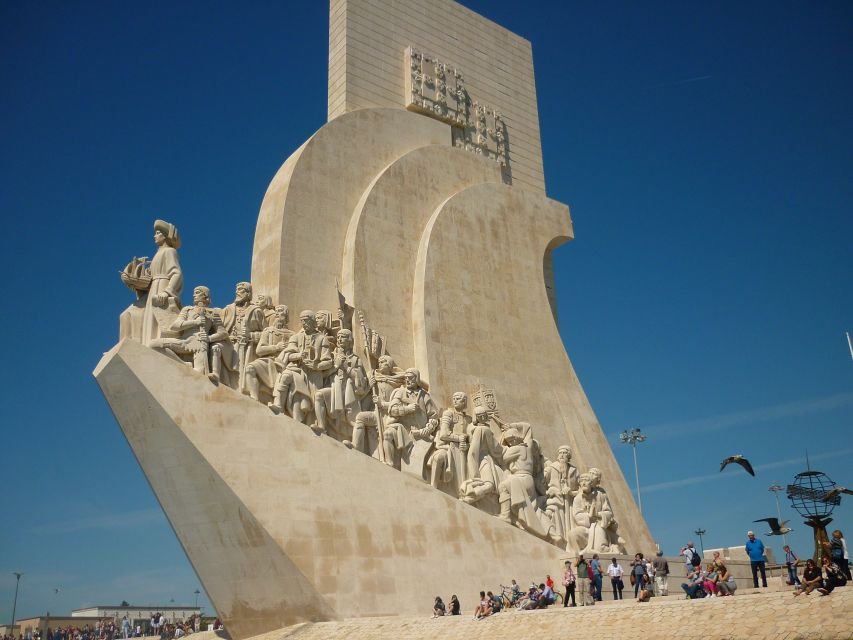
Step into the vibrant history of Lisbon during its Golden Age, where architecture, exploration, and cultural integration thrived.
Experience the city’s rich tapestry of past and present, from iconic landmarks to culinary delights.
Lisbon’s cosmopolitan essence and global significance continue to inspire travelers to delve deeper into its fascinating history.
Embrace the spirit of discovery and enlightenment as you explore the intellectual and social movements that have shaped this magnificent city.
Lisbon awaits, ready to enchant and captivate your senses.
More Tour Reviews in Lisbon
Not for you? Here's more nearby things to do in Lisbon we have reviewed
- Lisbon: Private Sailing Tour
- Half-Day Private Tour in Sintra
- Colorful Street Art Walking Tour in Lisbon
- Lisbon Golden Age – Cosmopolitan and Global
- Lisbon: Quinta Da Regaleira, Sintra and Cascais
- Sintra, Óbidos, Baleal, Peniche ,Mafra: Day Tour From Lisbon
- Private Arrábida Wine Tour
- Lisbon: Sunset Cruise on the Tagus River With Welcome Drink
- Lisbon – Full Day Private Tour
- Lisbon: Half-day Sightseeing Tuk Tour
- Lisbon: Old Town Walking Tour
- Lisbon: Authentic Fado Show, Dinner and Night Tour
